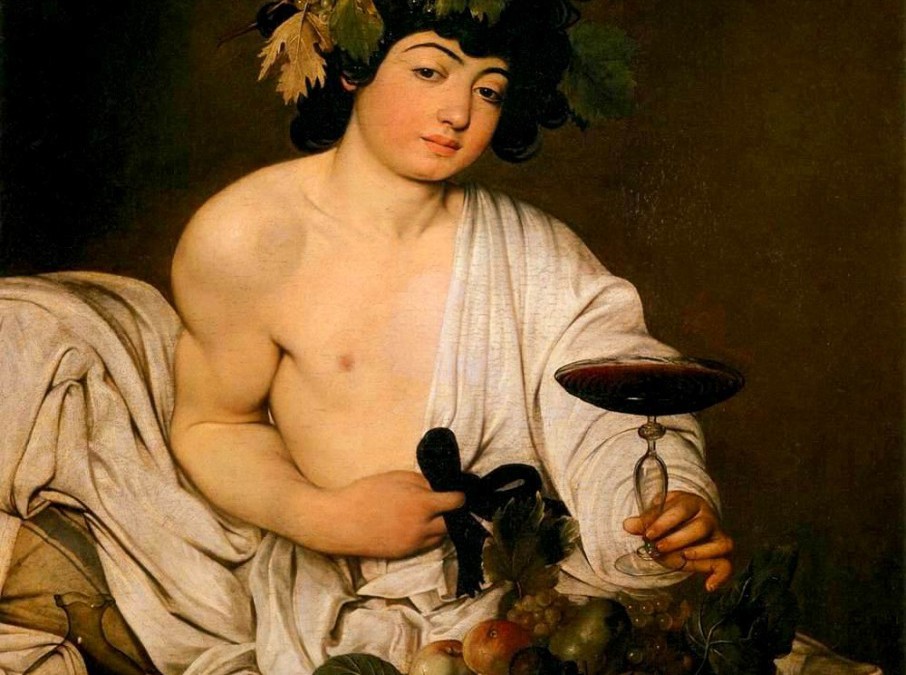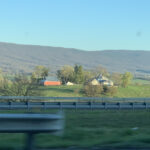Part One: Jäegermeister
“I think of drinks as elements that are entered, like bodies of water or locales.”
~ Lawrence Osborne, The Wet and the Dry
In the early 19th century, when Napoleon Bonaparte was scrounging the French countryside for young men to fill out his battalions, a young Alsatian named John Steiner was swept up in the wave of imperial conscription. A Mennonite and a pacifist, he was determined to escape, which he did, but he was quickly recaptured. But he gave it another try, and this time managed to board a ship bound for Canada. There in the fertile fields of Ontario, he sired a family—a clan of farmer-preachers who made a slow migration over the generations into Ohio and Indiana. In the decades following World War II, as the national myth of that war solidified and the particular branch of Mennonitism was watered down with generic American Evangelicalism, the Steiner commitment to pacifism softened, but its conviction that Jesus was Lord remained as strong as ever, and the largest burr on that cold-sawn cross, I soon came to realize, was an abhorrence to alcohol.
In my childhood, I knew beer only as something sold by frogs on TV. It was the butt of jokes at family gatherings in the way that swear words are to elementary schoolers. Wine was something my mom’s sisters drank once or twice a year at restaurants, or an archaic term for the communion cup, a term of rite like fealty or canonization. Liquor was something unholy, a palatinate of dark spirits whose names were akin to those of Canaanite gods –– whiskey, brandy, gin –– the only conceivable purpose of which was the moral corruption of sad addicts.
I heard vague intimations that relatives on the Henry side were alcoholics, but these people were referenced only in the past tense, living or dead somewhere in New Jersey. My dad hinted about his college years, being transferred out of his small Christian school in central Indiana after freshman year for partying. Like my grandma’s relatives, alcohol was something he had put behind him, along with convertibles and Steely Dan.
Gradually, inevitably, I became curious. The concept kept imposing itself on me. Sour applesauce in a buffet line. Blue cans in the canyon at McCormick’s Creek. Stray Psalms and Proverbs, certain undeniable episodes in the life of Christ, Paul’s instruction to Timothy about his stomach. My mom’s glass of N/A wine at a Carlson family gathering. The endless varieties on display on the shelves of restaurants and grocery stores.
I was working a wedding reception with my friend Brian and a couple other high schoolers. We were servers, carrying trays of bruschetta between the tables and out onto the veranda where the sun was bright on the Lake and the bare shoulders of the bridesmaids. I was 17.
Carrying dishes back to the dish room, I caught glimpses of the chef toiling over the burners in his white smock, a grimace on his round face, and as the night progressed, I grew increasingly curious about the bottles that seemed to gravitate towards him, sucked momentarily into his orbit before being slingshotted out into the dining room. This was something new for me. I was in the presence of a drinker, of someone who was in the process of getting drunk.
At the end of the night, he wobbled into the dish room to corral the wait staff. He addressed us, this stranger whose name I didn’t know, as if we had served in combat together. I beheld him with soft wonder. He had four or five red Solo cups clawed together in his hands, and he passed them out to each of us. I looked in and saw a substance the color of engine oil hissing in the bottom of the cup. I took notice of a pair of Red Bull cans lying on their sides on the counter.
He raised his own cup and made a toast: “I just want to congratulate you guys on a hell of a job. This was a big-ass wedding. I couldn’t ask for a better staff …” and so on until he trailed off, smiling at us. I don’t know why—maybe it was the look in my eyes that drew his attention, or the simple fact of my height—but he had turned that dumb, happy smile on me. The others, all underage like me, had apparently noticed him noticing me because they were looking at me as if for affirmation, for guidance. I had seen it done in movies. I sensed that we had come to a moment of truth. It was one of those rare moments when the pace of events slows and possibilities coalesce into a set of clear choices and demand that a decision be made.
I raised the cup to my lips and threw it back. Like Listerine, I thought. It was remarkable. It was nothing. It tasted almost exactly like a fly I had swallowed once while riding my bike.
Walking down to the parking lot, I was filled with a strange lightness of step and buoyancy of mind. The evening light looked beautiful and brassy. I got into the car with some trepidation and gripped the wheel firmly as I drove the twenty miles back to Holland, soaking in the wisdom that Brian, who had drunk Bacardi before and possibly beer, now felt free to impart. We stopped at a Family Fare two minutes from my house and drank chocolate milk in the deserted cafe until I felt the weight settle back into my shoes.
“That was a Jäger Bomb,” Brian told me.
“Wow,” I thought.
Andrew Steiner (’12) is a Grand Rapids native. He’s a fiction writer with a day job at Feeding America West Michigan Food Bank. You can also find him working part-time for Ham Family Farm, pulling weeds, planting seeds, and slinging produce at the Fulton Street Farmers Market.









Can’t wait for the next three parts.
Thanks, Nard!
So good! I was giggling like an idiot through the whole second half. Sucked me right in.